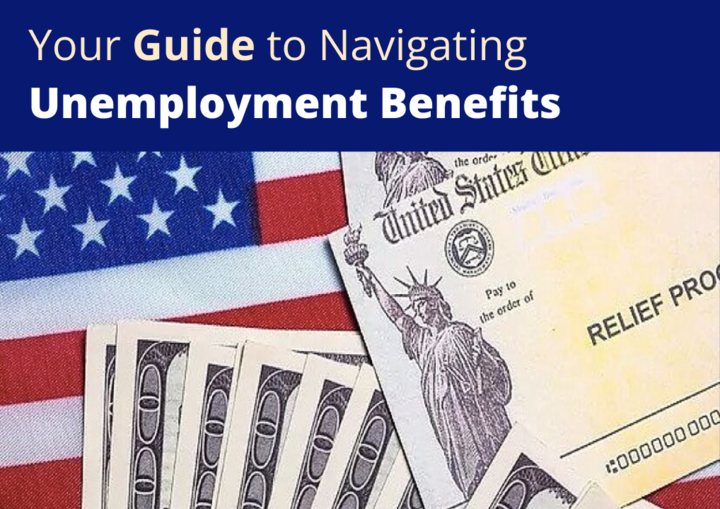Extended auto warranties, often referred to as vehicle service contracts, are agreements that provide additional coverage beyond the standard warranty offered by the manufacturer. These warranties are designed to protect car owners from unexpected repair costs after the original warranty expires.
Typically, a manufacturer’s warranty covers a vehicle for a specific period or mileage, often around three years or 36,000 miles.
Once this coverage lapses, many drivers find themselves facing potentially hefty repair bills, which is where extended warranties come into play. The concept of extended warranties can be somewhat confusing, as they vary significantly in terms of coverage, duration, and cost. Some extended warranties are offered directly by the vehicle manufacturer, while others are provided by third-party companies.
Understanding the nuances of these options is crucial for consumers. For instance, manufacturer-backed warranties may offer more comprehensive coverage and better reliability compared to third-party options, which can sometimes have limitations or exclusions that are not immediately apparent. As such, it is essential for car owners to thoroughly research and understand the terms and conditions associated with any extended warranty they consider.
Key Takeaways
- Extended auto warranties provide coverage for repairs and maintenance beyond the manufacturer’s warranty period.
- Coverage and benefits of extended auto warranties can vary widely, so it’s important to carefully review the terms and conditions.
- The cost of extended auto warranties can depend on factors such as the age and mileage of the vehicle, as well as the level of coverage desired.
- Before purchasing an extended auto warranty, consider factors such as the reliability of the vehicle, expected repair costs, and the length of ownership.
- Common misconceptions about extended auto warranties include the belief that they are unnecessary or that all repairs will be covered.
Coverage and Benefits of Extended Auto Warranties
The coverage provided by extended auto warranties can vary widely depending on the plan selected. Generally, these warranties can cover a range of components, including the engine, transmission, electrical systems, and even some high-tech features found in modern vehicles. Some plans may also include roadside assistance, rental car reimbursement, and trip interruption coverage, which can be invaluable in the event of a breakdown while traveling.
The breadth of coverage is one of the primary reasons many consumers opt for extended warranties; they provide peace of mind knowing that they are protected against significant repair costs. In addition to financial protection, extended auto warranties can enhance the overall ownership experience. For instance, having an extended warranty can make it easier to budget for vehicle maintenance and repairs since many unexpected costs are covered under the plan.
This predictability can alleviate stress for car owners who might otherwise worry about how they would afford a sudden repair bill. Furthermore, some extended warranties allow for repairs to be made at any licensed repair shop, providing flexibility and convenience for vehicle owners who may prefer a specific mechanic or dealership.
Cost of Extended Auto Warranties
The cost of extended auto warranties can vary significantly based on several factors, including the make and model of the vehicle, the level of coverage selected, and the duration of the warranty. On average, consumers can expect to pay anywhere from $1,000 to $3,000 for an extended warranty. Luxury vehicles or those with a history of reliability issues may command higher premiums due to the potential for costly repairs.
Additionally, the age and mileage of the vehicle at the time of purchase can also influence pricing; newer vehicles typically have lower warranty costs compared to older models. It is also important to consider that while the upfront cost of an extended warranty may seem high, it can be a worthwhile investment if it prevents significant repair expenses down the line. For example, a single transmission repair can easily exceed $3,000, making an extended warranty a financially sound choice for many drivers.
However, consumers should also be aware of potential deductibles associated with claims and any limitations on coverage that could affect their overall costs. Understanding these financial implications is crucial when evaluating whether an extended warranty is a prudent investment.
Factors to Consider Before Purchasing an Extended Auto Warranty
Before committing to an extended auto warranty, several factors should be carefully considered to ensure that it aligns with individual needs and circumstances. One critical aspect is the reliability of the vehicle itself; if a car has a strong track record for dependability and low maintenance costs, an extended warranty may not be necessary. Conversely, if a vehicle is known for frequent repairs or has a history of issues, investing in an extended warranty could provide essential protection against future expenses.
Another important consideration is the specific terms and conditions of the warranty being offered. Consumers should scrutinize what is covered and what is excluded in the policy. For instance, some warranties may not cover wear-and-tear items such as brake pads or tires, which could lead to unexpected out-of-pocket expenses.
Additionally, understanding the claims process is vital; some warranties may require repairs to be performed at specific locations or may have stringent documentation requirements that could complicate claims. Evaluating these factors will help consumers make informed decisions about whether an extended warranty is suitable for their situation.
Common Misconceptions About Extended Auto Warranties
There are several misconceptions surrounding extended auto warranties that can lead to confusion among consumers. One prevalent myth is that all extended warranties are essentially the same; however, this is far from true. The quality and comprehensiveness of coverage can vary significantly between different providers and plans.
Some warranties may offer extensive coverage for major components while excluding others that could be critical for vehicle performance. Therefore, it is essential for consumers to conduct thorough research and compare various options before making a decision. Another common misconception is that purchasing an extended warranty is always a waste of money.
While it is true that some drivers may never need to use their warranty benefits, others may find themselves facing substantial repair costs that far exceed the price of the warranty itself. The value of an extended warranty often depends on individual circumstances, including driving habits and vehicle reliability. For instance, someone who drives long distances regularly may benefit more from an extended warranty than someone who primarily uses their vehicle for short trips around town.
Understanding these nuances can help consumers make more informed choices regarding extended auto warranties.
Alternatives to Extended Auto Warranties
For those who are hesitant about purchasing an extended auto warranty or find them too costly, several alternatives exist that can provide similar benefits without the commitment of a long-term contract. One option is to establish a dedicated savings fund specifically for vehicle repairs and maintenance. By setting aside a small amount each month, car owners can build a financial cushion that can be used for unexpected repairs as they arise.
This approach allows for greater flexibility and control over how funds are spent. Another alternative is to consider third-party insurance products that offer mechanical breakdown insurance (MBI).
Unlike traditional extended warranties, MBI policies typically cover repairs on a pay-per-claim basis without requiring upfront payment for a full warranty term.
This type of insurance can provide peace of mind while allowing consumers to pay only when they need coverage. Additionally, some credit cards offer benefits such as extended warranties on purchases made with the card or even rental car insurance that covers mechanical failures during travel. Exploring these alternatives can help consumers find solutions that better fit their financial situation and risk tolerance.
How to Choose the Right Extended Auto Warranty
Selecting the right extended auto warranty requires careful consideration of various factors to ensure that it meets individual needs effectively. First and foremost, consumers should assess their driving habits and vehicle usage patterns. For example, those who frequently drive long distances or own vehicles with known reliability issues may benefit more from comprehensive coverage than those who drive infrequently or own highly reliable models.
Additionally, it is crucial to evaluate the reputation and reliability of the warranty provider. Researching customer reviews and ratings can provide insight into how well a company handles claims and customer service issues. A provider with a strong track record of customer satisfaction will likely offer a smoother experience when it comes time to file a claim or seek assistance with repairs.
Furthermore, understanding the specific terms of coverage—such as deductibles, exclusions, and claim limits—will help consumers make informed decisions about which plan offers the best value for their needs.
Is an Extended Auto Warranty Worth It?
Determining whether an extended auto warranty is worth it ultimately depends on individual circumstances and preferences. For some drivers, particularly those with vehicles known for reliability issues or those who drive extensively, an extended warranty can provide invaluable protection against unexpected repair costs. The peace of mind that comes from knowing that major repairs will be covered can outweigh the initial investment in many cases.
On the other hand, consumers who own vehicles with strong reliability ratings or who have sufficient savings set aside for potential repairs may find that an extended warranty does not offer significant value in their situation. It is essential for each car owner to weigh their options carefully and consider their unique driving habits and financial circumstances before making a decision about purchasing an extended auto warranty. Ultimately, understanding both the benefits and limitations of these warranties will empower consumers to make choices that best suit their needs and preferences in vehicle ownership.
FAQs
What is an extended auto warranty?
An extended auto warranty, also known as a vehicle service contract, is a protection plan that provides coverage for certain repairs and maintenance after the manufacturer’s warranty expires.
What does an extended auto warranty cover?
The coverage provided by an extended auto warranty can vary, but it typically includes repairs for major components such as the engine, transmission, and electrical systems. Some plans may also cover additional items like roadside assistance and rental car reimbursement.
Is an extended auto warranty worth it?
Whether an extended auto warranty is worth it depends on individual circumstances such as the age and reliability of the vehicle, the cost of the warranty, and the likelihood of needing expensive repairs. It’s important to carefully consider these factors before deciding whether to purchase an extended auto warranty.
How long does an extended auto warranty last?
Extended auto warranties can vary in length, but they typically provide coverage for an additional period of time after the manufacturer’s warranty expires. This can range from a few years to tens of thousands of miles, depending on the specific terms of the warranty.
Where can I purchase an extended auto warranty?
Extended auto warranties can be purchased from various sources, including car dealerships, third-party warranty companies, and sometimes directly from the vehicle manufacturer. It’s important to research and compare options before making a purchase.







